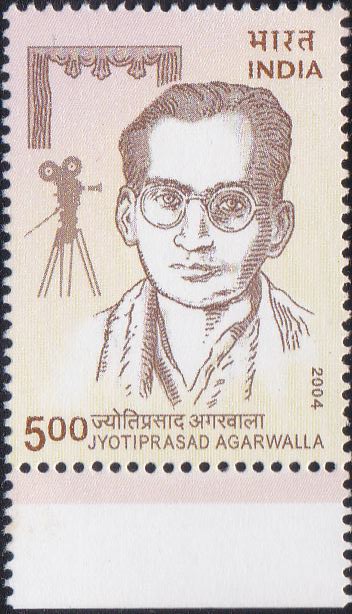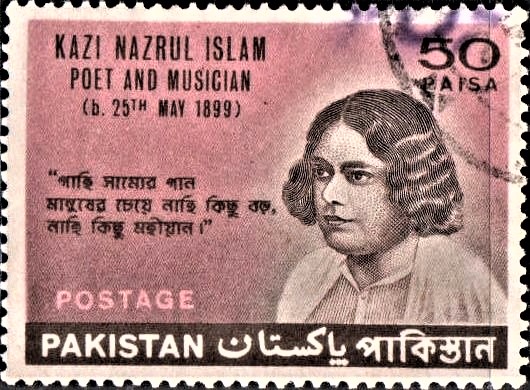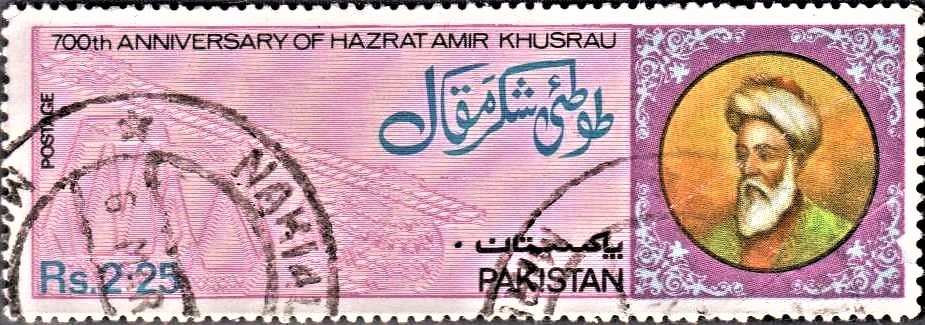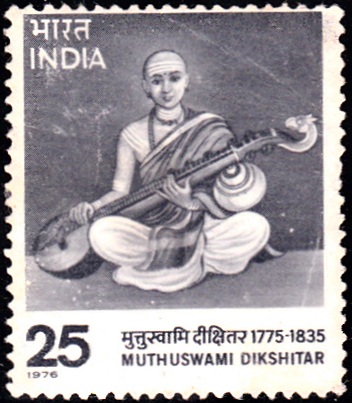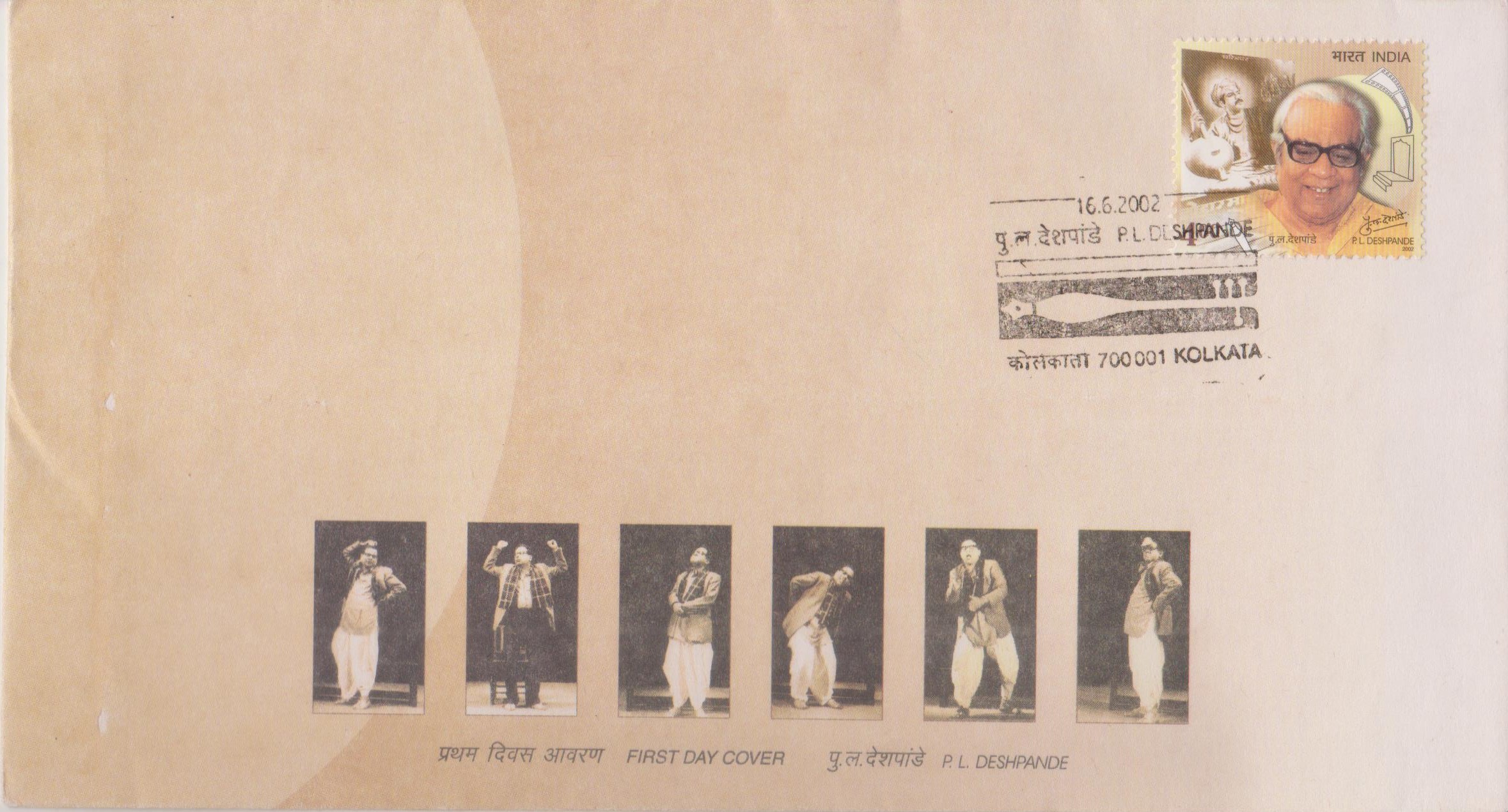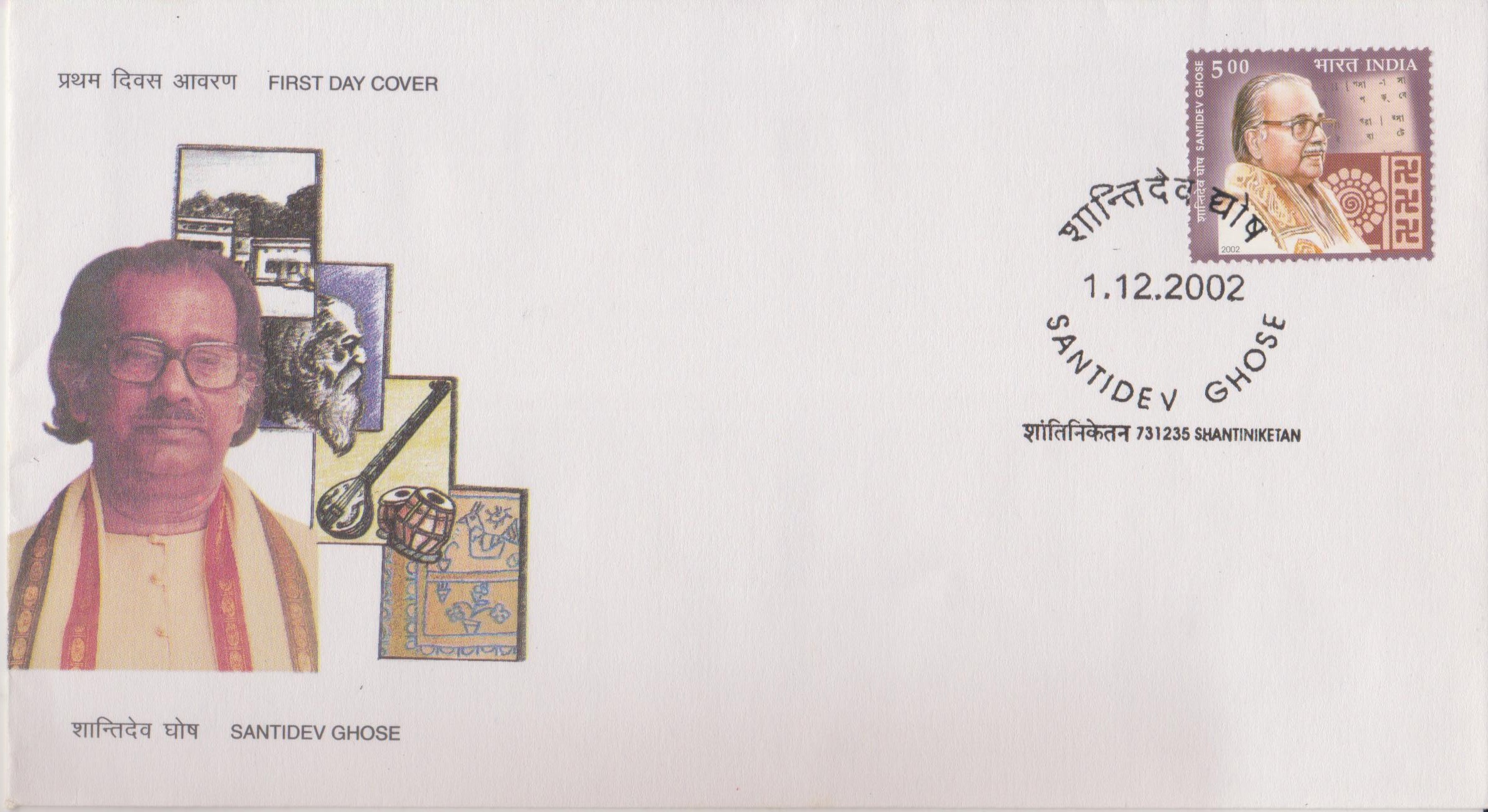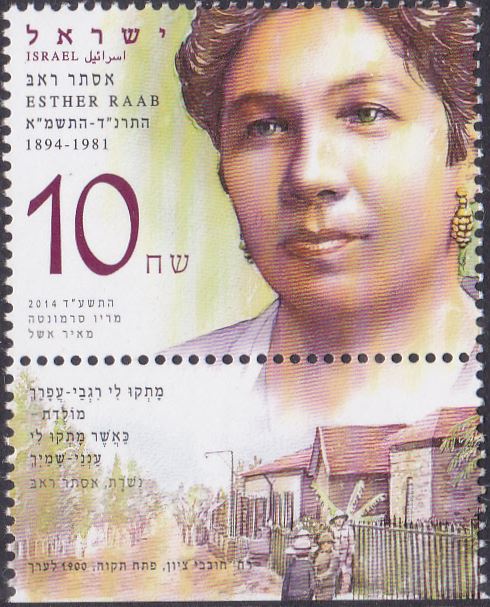
Pioneering Women of Israel 2014
Complete Set of 2 nos of commemorative postage stamps on the Pioneering Women : Sara Levi–Tanai and Esther Raab :
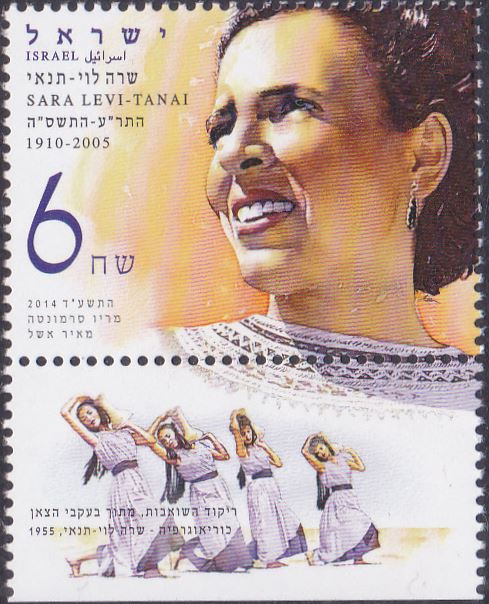

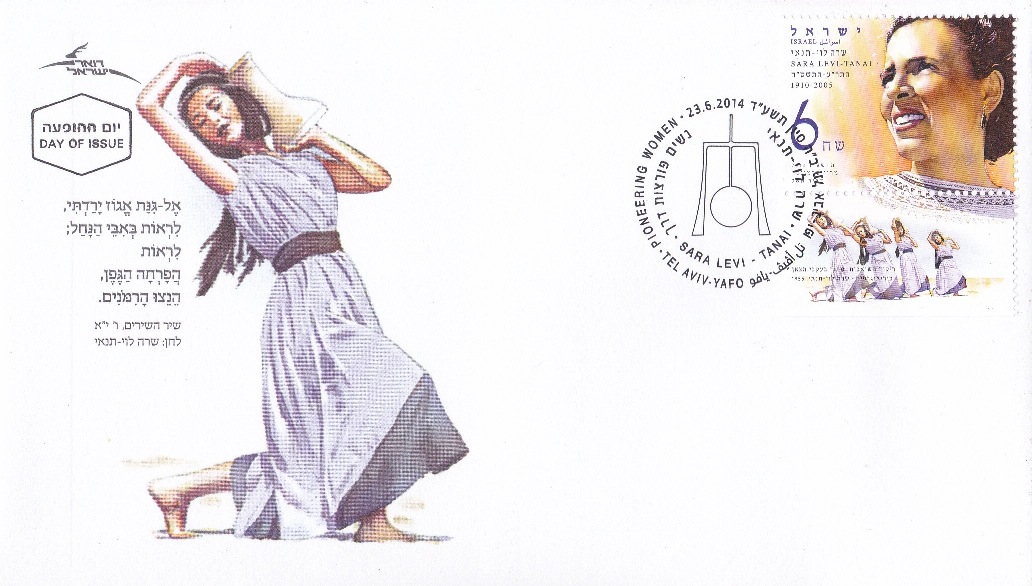
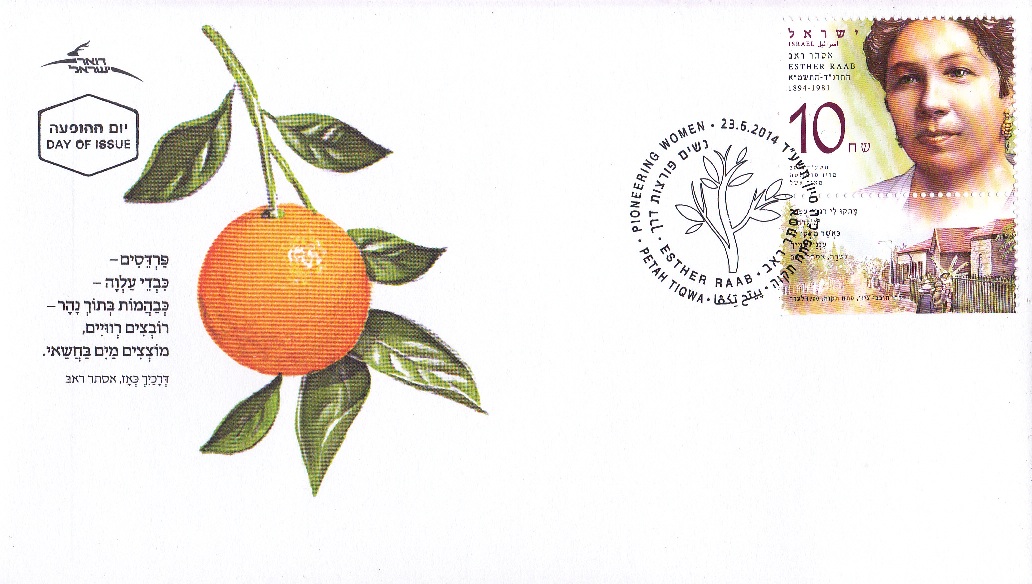 Issued by Israel
Issued by Israel
Issued on Jun 23, 2014
Description of the Stamps :
Sara Levi–Tanai stamp
The stamp features a sketched portrait based on a photograph courtesy of Shalom Seri of “Eele Betamar”.
The tab features an adapted photograph of the Rikud Hashoavot (Dance of the Women Drawing Water), from Be’ikvei Hazon (Shepherd Songs), choreography – Sara Levi-Tanai, 1955. Courtesy of the dance library at Beit Ariela and Lee Perlman, Executive Director of the America–Israel Cultural Foundation.
Esther Raab stamp
The portrait featured on the stamp is based on a photograph courtesy of Ehud Ben Ezer.
The tab features an adapted photograph of Hovevei Zion Street in Petach Tikva, circa 1900. Courtesy of Dr. Dalia Levy Eliahu.
Type : Stamps with Tabs, Mint condition
Security mark : Microtext
Colour : Multi colour
Denomination : 6 & 10 Shekel
Plates : 947 & 948
Stamps per Sheet : 15
Tabs per Sheet : 5
Method of Printing : Offset
Printer : Joh. Enschede, The Netherlands
Name : Sara Levi-Tanai
Born on 1910 at Jerusalem, Israel
Died on Oct 3, 2005 at Ramat Gan, Israel
Name : Esther Raab
Born on Apr 25, 1894 at Petah Tikva, Israel
Died on Sep 4, 1981 at Israel
About :
- Early signs of women’s aspirations for gender equality in Eretz Israel were apparent as far back as the First Aliyah, as some women chose to take part in public affairs or non-conventional professions. Although the pages of history have not granted them their proper place – they operated in a world of preconceptions and discrimination against women, their fight for self-realization and equal opportunity cleared a path and inspired others.
- The State of Israel embraced equality as a core principle early on, and just three years after the establishment of the State the Knesset passed the Women’s Equal Right Law of 1951, guaranteeing equal treatment of women and men.
- Women have yet to be fully included in society’s most influential bodies, but the efforts of these pioneering women set a quiet social revolution in motion, furthering gender equality and changing our society.
- Sara Levi–Tanai
(1910-2005)Choreographer, songwriter and poet Sara Levi-Tanai was born in Jerusalem to parents who were originally from Yemen. After her mother passed away when she was seven years old, she grew up in an orphanage in Sated and in the Meir Shfeya youth village. Levi-Tanai’s many talents, including writing and dramatizing were apparent from the time she was a child and she was awarded a JDC scholarship to Levinsky Seminar in Tel Aviv. There she was trained as a preschool teacher and subsequently worked in preschools in little Tel Aviv. Due to a shortage of proper educational material, she began writing poems and recitations for children. She also published stories in a number of newspapers, Davar, Davar Yeladim and Davar Hapo’elet.In 1940 she moved to Kibbutz Ramat Hakovesh, where she taught preschool during the day and was a cultural creator at night. She wrote revues for the holidays, set biblical passages to music, wrote holiday songs and created folk dances, the most well-known of which is El Ginat Ha’egoz (To the Nut Grove). She also published two children’s books at that time. Her desire to be more active in the arts brought Levi-Tanai back to Tel Aviv, where she founded the lnbal Dance Theater in 1949. She brought young girls and boys from “Kerem Hatemanim“, and through them connected to her Yemenite roots, which inspired her unique artistic works.
Sara Levi-Tanai developed a new language of movement. Her choreography was inspired by the bible, Israeli landscapes and Yemenite and Sephardic folklore. Through its many overseas tours, lnbal served as an ambassador of Israeli culture.
Sara Levi-Tanai was awarded the Israel Prize in dance in 1973 for her contributions in the field of performing arts, as well as various other awards, including the title of “honored citizen of Tel Aviv“.
Michal Degani
Daughter of Sara Levi-Tanai - Esther Raab
1894-1981Esther Raab, Israel’s first native poet, was born in Petach Tikva, the first Hebrew moshava (agricultural colony). Her father, Judah Raab, was among the founders of Petach Tikva. Her poems began to be published in the early 1920’s and her first book, Kimshonim (Thistles) came out in 1930.The happiest years of her life were those spent growing up in the moshava, with its landscapes, animals and vegetation, and in time – her wealth, friends, home in Tel Aviv, which was a gathering place for writers and artists in the early 1930’s, and most of all – her poems, written over the course of more than 60 years, until just before her death at age 87.
The low points in her life were marked by her disappointing loves and marriage, her years of silence, her childlessness and in her later years she lost her fortune and was haunted by nightmares.
Author Yehoshua Kenaz wrote of her poetry: “Reading these poems is an Israeli experience, a Mediterranean experience, a first class artistic experience that poet Esther Raab was perhaps the first to express in such a bold and pure manner.“
Ehud Ben Ezer
Esther Raab’s nephew and author of her biography Yamim shel La’anah u–Dvash (Days of Gall and Honey)


